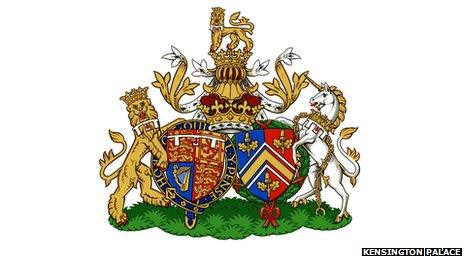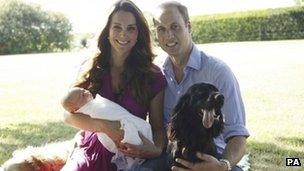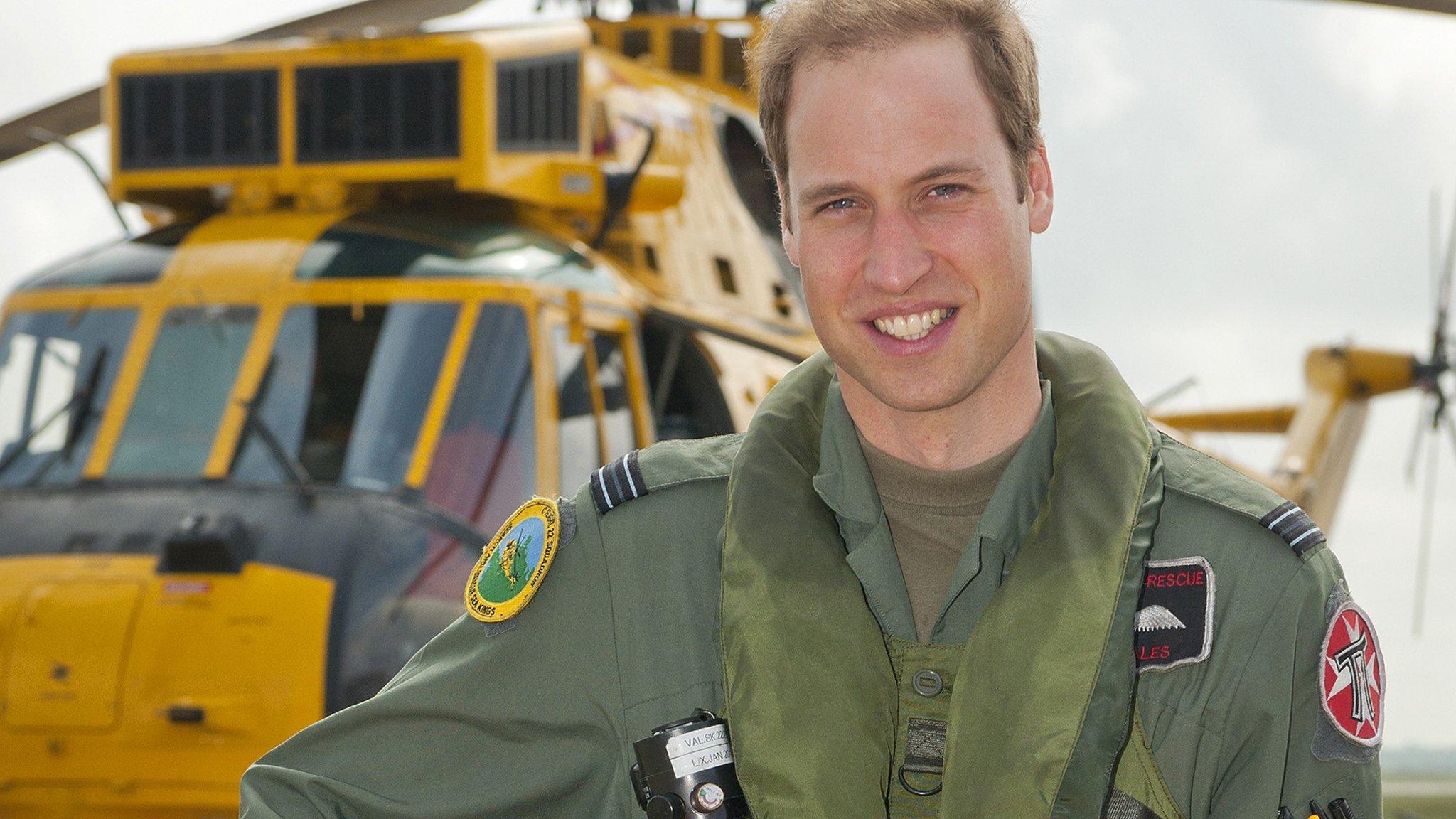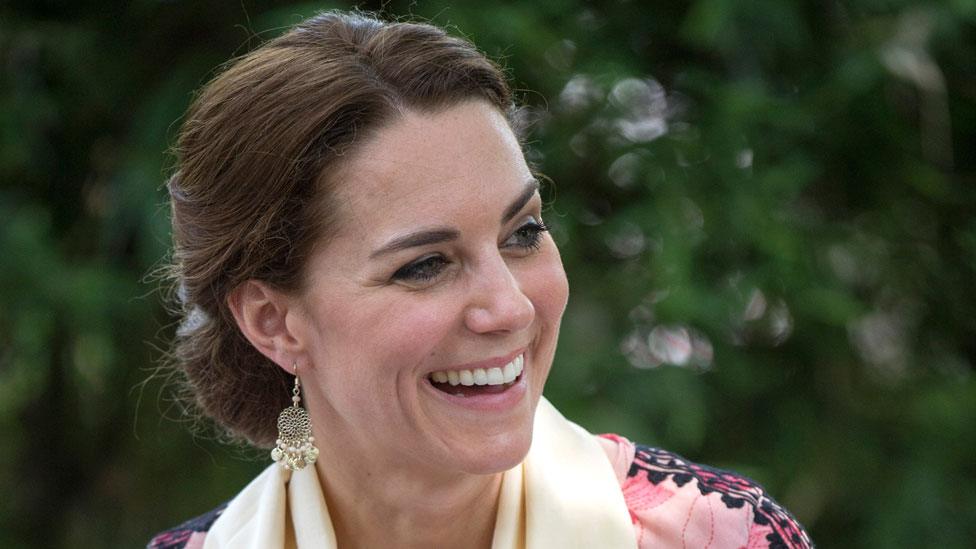Duke and Duchess of Cambridge get 'married' coat of arms
- Published

The Queen approved a new conjugal coat of arms for the Duke and Duchess of Cambridge
The Duke and Duchess of Cambridge have a new coat of arms to represent them as a married couple, Kensington Palace has announced.
The conjugal coat of arms was approved by the Queen earlier this year.
It combines Prince William's coat of arms and his wife's shield, from the Middleton family coat of arms.
Designed by the College of Arms in London, conjugal arms traditionally combine the separate shields of a royal husband and wife.
Prince William's shield, on the left of the coat of arms, is his version of the Royal Coat of Arms, granted to him by the Queen on his 18th birthday.
It shows the various royal emblems of different parts of the United Kingdom - the three lions of England, the lion of Scotland and the harp of Ireland.

The duke and duchess along with their son, Prince George, are expected to move from Anglesey to Kensington Palace within weeks
It is surrounded by a blue garter bearing the motto Honi soit qui mal y pense - Shame to those who think evil of it - which symbolises the Order of the Garter, of which he is a Knight Companion.
The Duchess of Cambridge's shield comes from the Middleton coat of arms, which was granted to the family in 2011, ahead of her marriage.
It is divided vertically, with one half blue and the other half red, and includes a gold chevron across the centre with white "cotises" either side.
It also includes three acorns - representing the duchess and her siblings Pippa and James - with gold stalks and leaves.
The conjugal arms was made by putting the Middleton shield next to Prince William's.
Spencer family tradition
In the couple's arms, the Duchess of Cambridge's shield is surrounded by a wreath of oak, to balance out her husband's garter - a tradition for royal spouses who are not themselves entitled to surround their arms with an order of chivalry.
Both shields are supported by the royal lion and unicorn, each wearing a three pointed collar, known as a label.
The label has a red escallop shell derived from the Spencer coat of arms, which has been used by Prince William's ancestors on his mother's side for many centuries.
The couple will keep the coat of arms forever, but parts could change as their own circumstances and roles change.
They will also keep their own coats of arms to represent themselves as individuals, Kensington Palace said.
- Published12 September 2013

- Published11 September 2013

- Published1 May 2016
